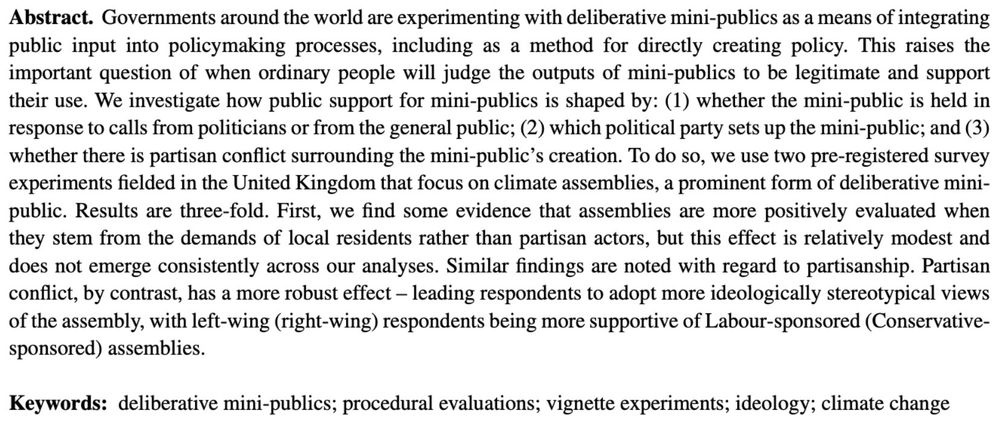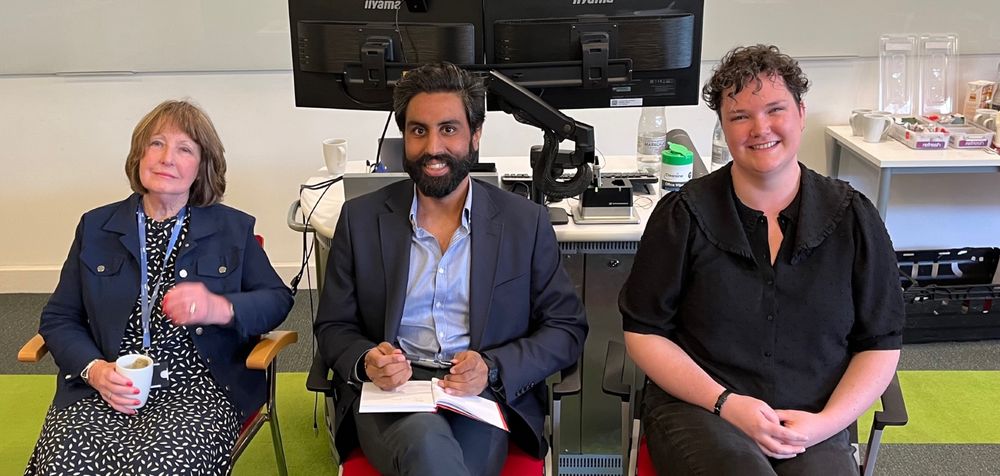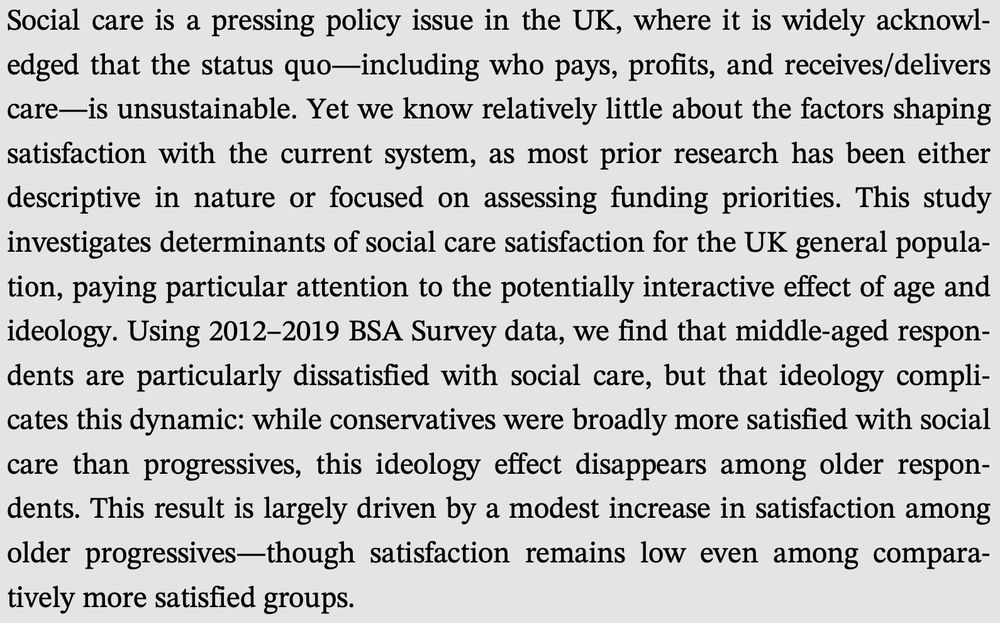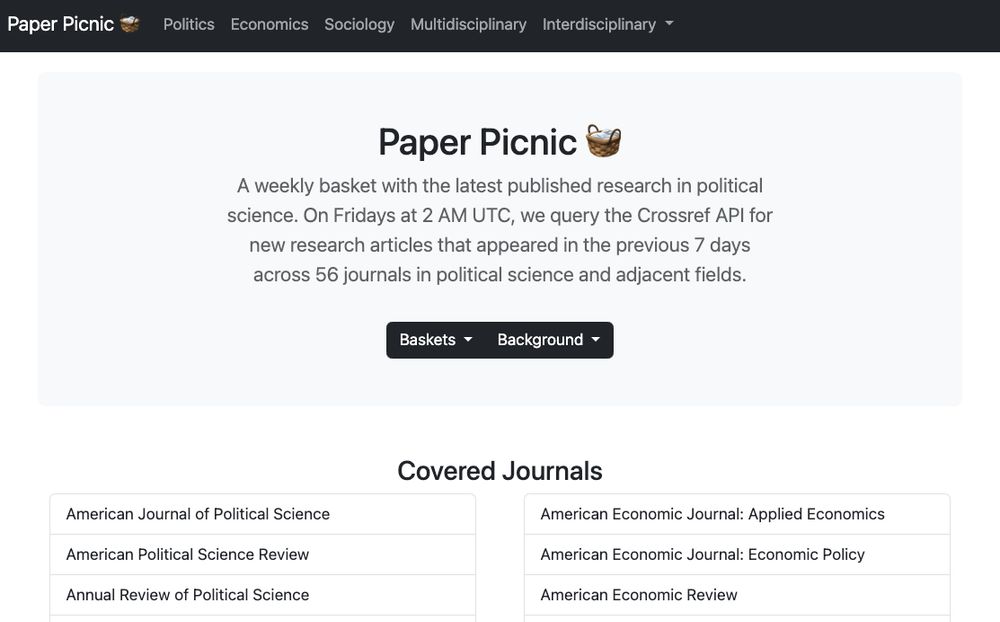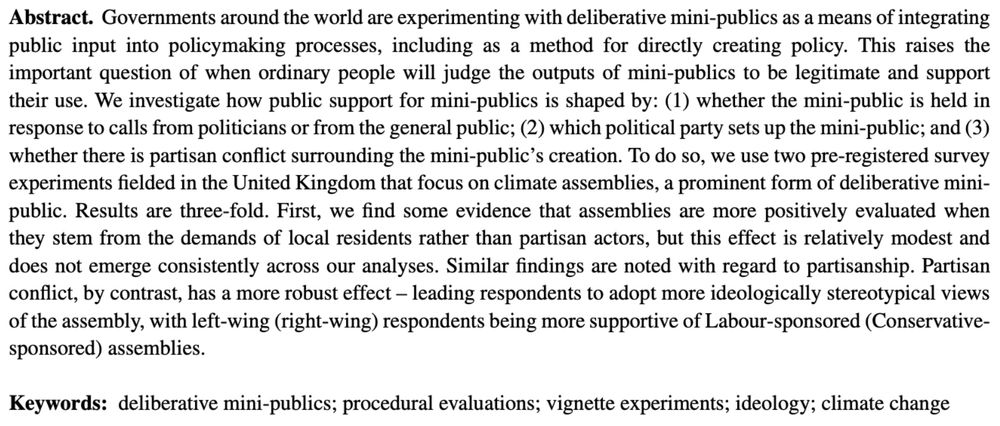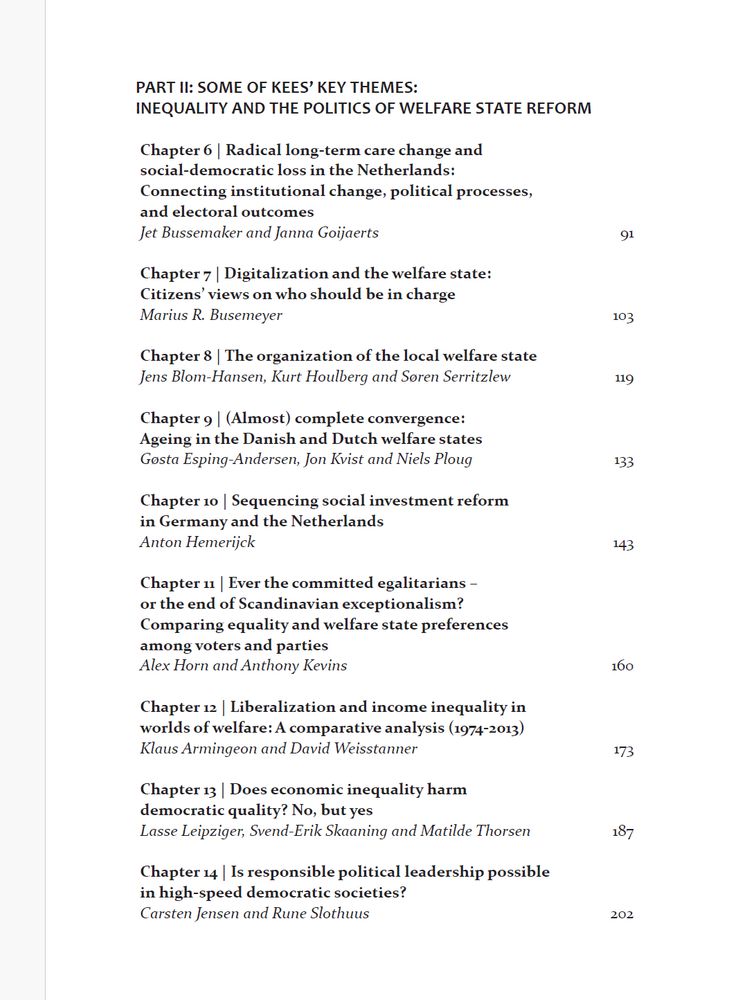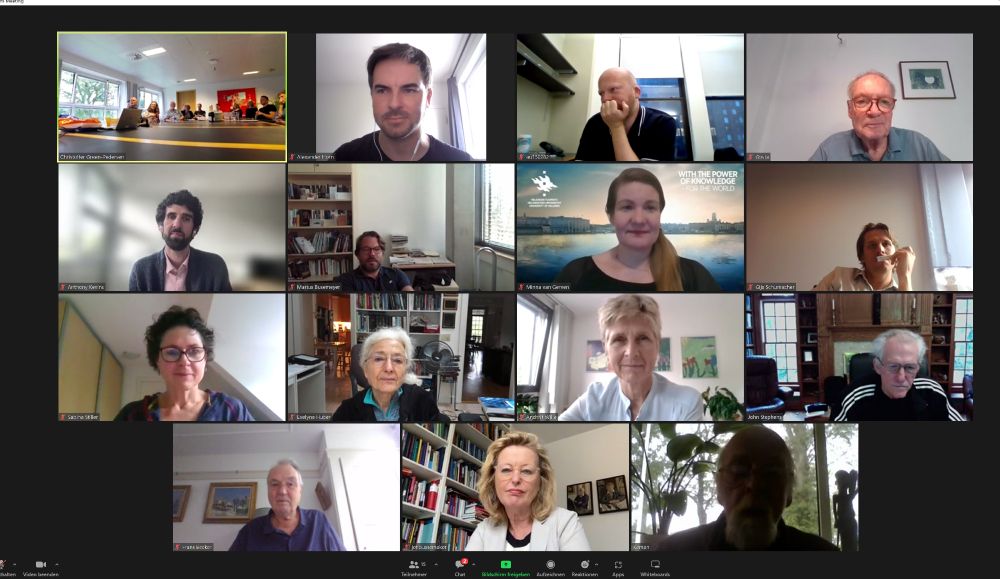Anthony Kevins
@avkevins.bsky.social
130 followers
160 following
9 posts
Political scientist studying how public opinion and policy interact.
• Senior Lecturer at Loughborough University
• UK Young Academy Member
• Loughborough UCU Branch Secretary
Posts
Media
Videos
Starter Packs
Anthony Kevins
@avkevins.bsky.social
· Sep 3

How we think about the political stances of others: evidence on projection from Canada, Germany, and the UK
What leads people to assume that others are more or less similar to them ideologically? To answer this question, this article uses original data from three multi-party democracies to analyse respon...
doi.org
Anthony Kevins
@avkevins.bsky.social
· Jul 7
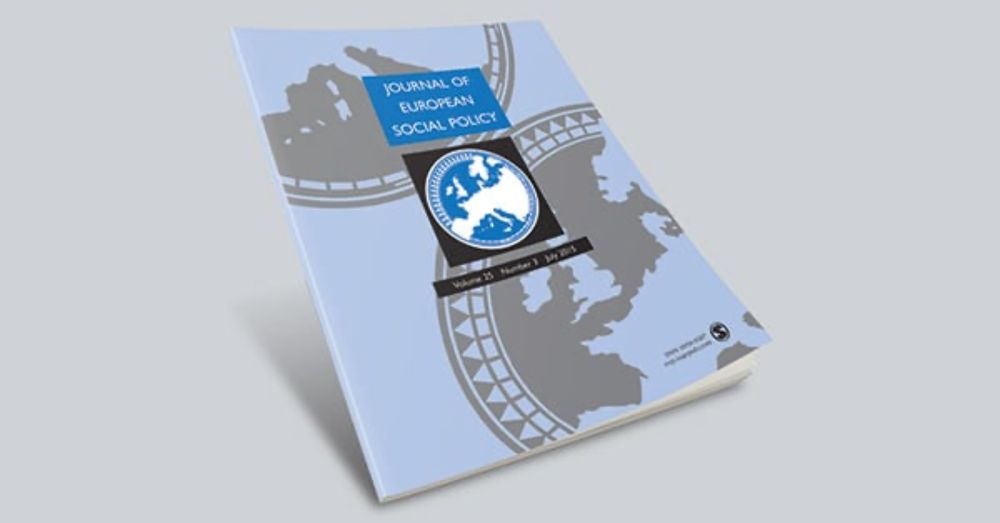
When caring comes at a cost: Psychological wellbeing of unpaid and paid carers and the role of social expenditure - Naomi Lightman, Anthony Kevins, 2025
This study examines whether, and under what conditions, unpaid and paid care work are associated with reduced psychological wellbeing. The article begins by lay...
tinyurl.com
Anthony Kevins
@avkevins.bsky.social
· May 12
Anthony Kevins
@avkevins.bsky.social
· May 12
Reposted by Anthony Kevins
Toni Rodon
@tonirodon.bsky.social
· Dec 17
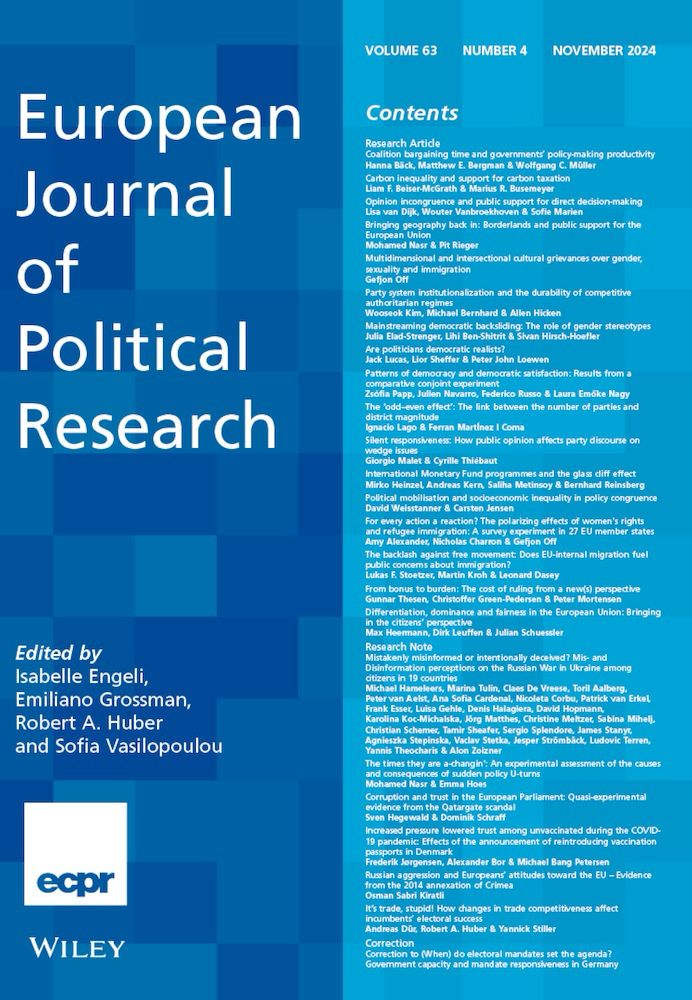
Are poor people poorly heard?
A growing body of literature shows that the preferences of poorer groups in society are less well represented than the preferences of the rich. This paper scrutinises one possible explanation of ineq...
ejpr.onlinelibrary.wiley.com
Reposted by Anthony Kevins
Reposted by Anthony Kevins
Anthony Kevins
@avkevins.bsky.social
· Feb 26
Workfare and Attitudes toward the Unemployed: New Evidence on Policy Feedback from 1990 to 2018 - Alexander Horn, Anthony Kevins, Kees Van Kersbergen, 2024
To what extent, and under what conditions, have workfare reforms shaped public opinion towards the unemployed? This article unpacks the punitive and enabling di...
tinyurl.com
Reposted by Anthony Kevins


